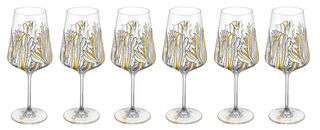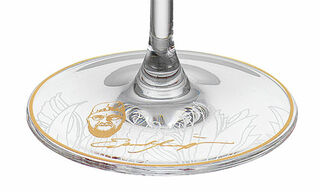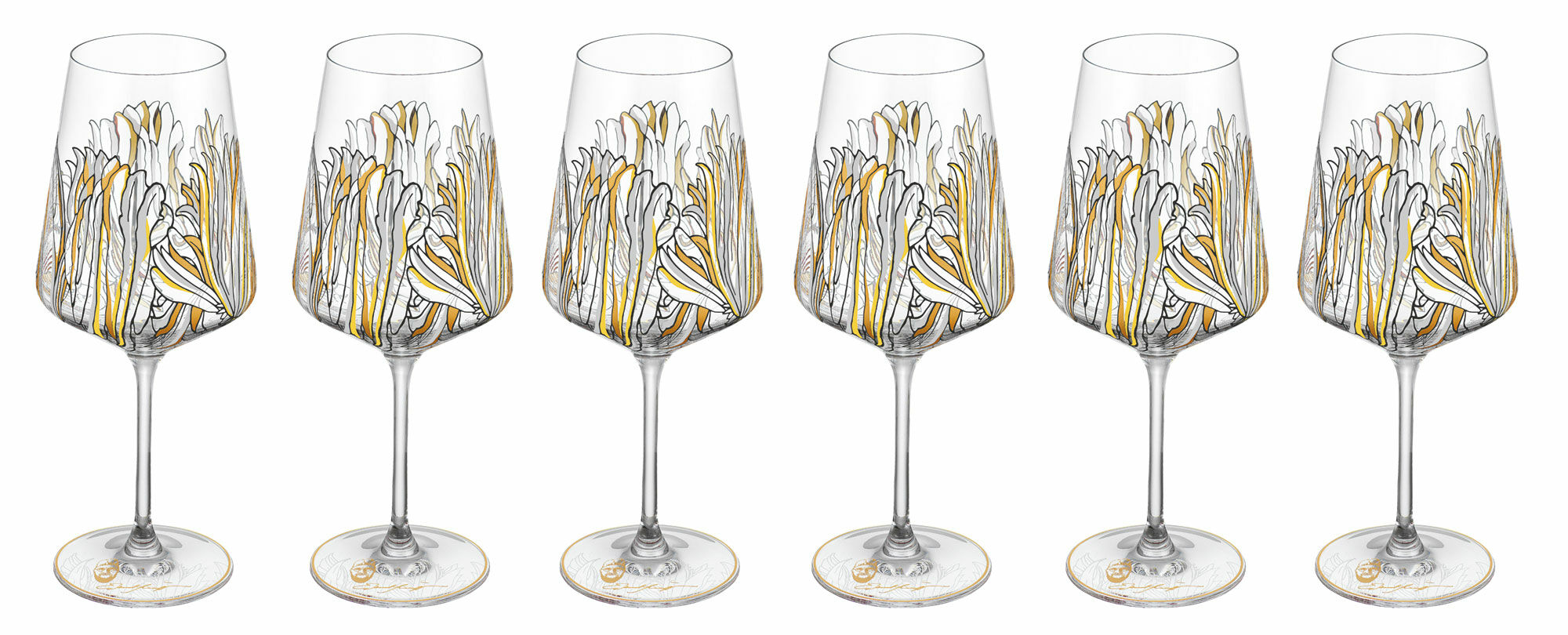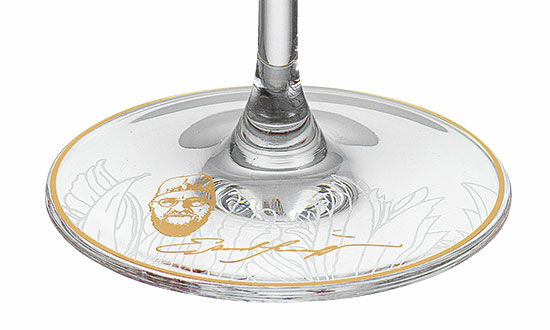Set of 6 white wine glasses "My Magic Garden"
Set of 6 white wine glasses "My Magic Garden"
Quick info
ars mundi Exclusive Edition | 6 glasses | gold and platinum decor | base: rim, signature + portrait in gold | capacity 0.56 litres each | hand wash recommended
Detailed description
Set of 6 white wine glasses "My Magic Garden"
The universal artist Ernst Fuchs expanded his artistic field with the glass series "My Magic Garden", which is exclusively available worldwide only at ars mundi. He recourse on sources of his art that were important to him throughout all the decades of his creative work: the floral motifs of Art Nouveau and Art Deco.
An edition for a festive evening with guests: the white wine glasses transform the festively decorated table into a "magic garden" and harmonise perfectly with fine tableware. The foliage grows almost to the top of the glasses and is lavishly decorated with gold and platinum. Base with rim, signature and portrait of Ernst Fuchs in fine gold. Height 23.5 cm each. Vol. 0.56 litres each. Hand wash recommended.
About Ernst Fuchs
1930-2015
Ernst Fuchs, born in Vienna in 1930, already presented his works to the public in 1946/47 together with other young artists during his studies at the Vienna Academy. He was one of the co-founders of the Vienna School of Fantastic Realism.
This art movement emerged in Vienna around 1945 and deliberately set itself apart from abstract art. In their works, the artists dealt with French Surrealism, the experiences of New Objectivity and metaphysical painting as well as the fantastic elements of Viennese pre-war art. Ernst Fuchs' work has had a decisive influence on our understanding of 20th-century art.
The motifs are complex allegories depicting human afflictions between life and death. Biblical and mythological representations dominate. The motifs of the Old and New Testaments are deliberately enigmatic and visionary in expression. These riddles are meant to bring knowledge and solution to the viewer as well as to the artist.
His engagement with the heterogeneous art traditions led him to his historicism. He mixed the styles, sometimes in a polemical way. In his first book, "Architectura Caelestis: Images of the Hidden Prime of Styles" first published in 1964, he set out his artistic conception.
The imaginative pictorial inventions, often alienated by surreal elements, evoke something mystical and often erotic. Fuchs' entire oeuvre is repeatedly permeated by biblical motifs. They all culminate in the unique book, the Ernst Fuchs Bible.
Graphic or sculpture edition that was initiated by ars mundi and is available only at ars mundi or at distribution partners licensed by ars mundi.






